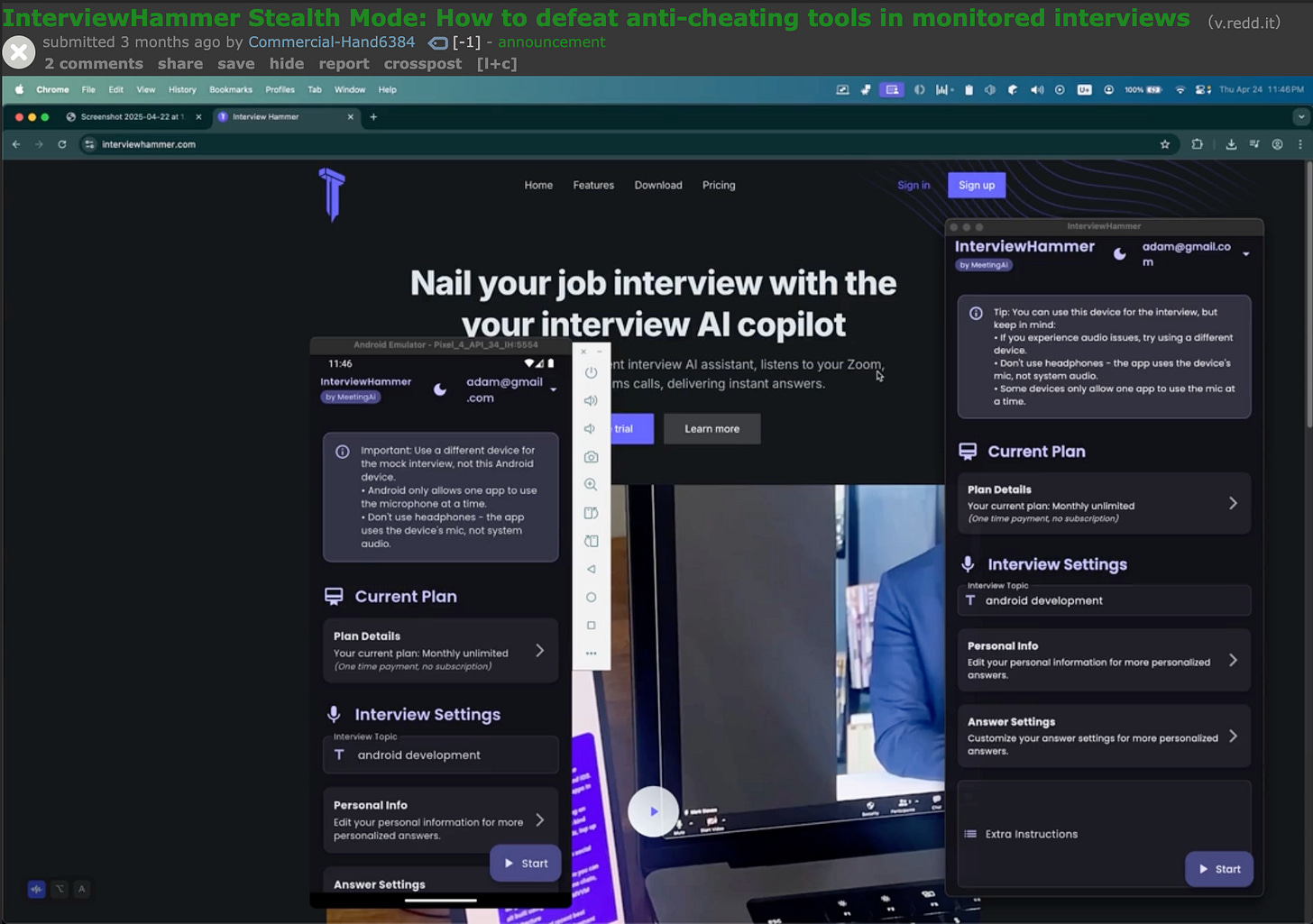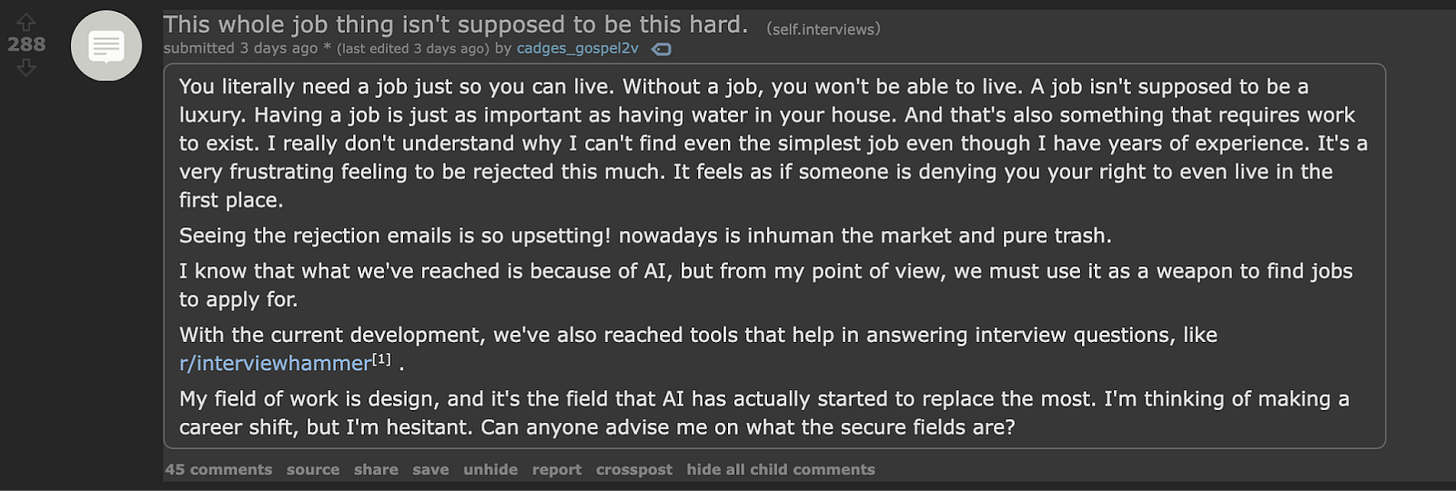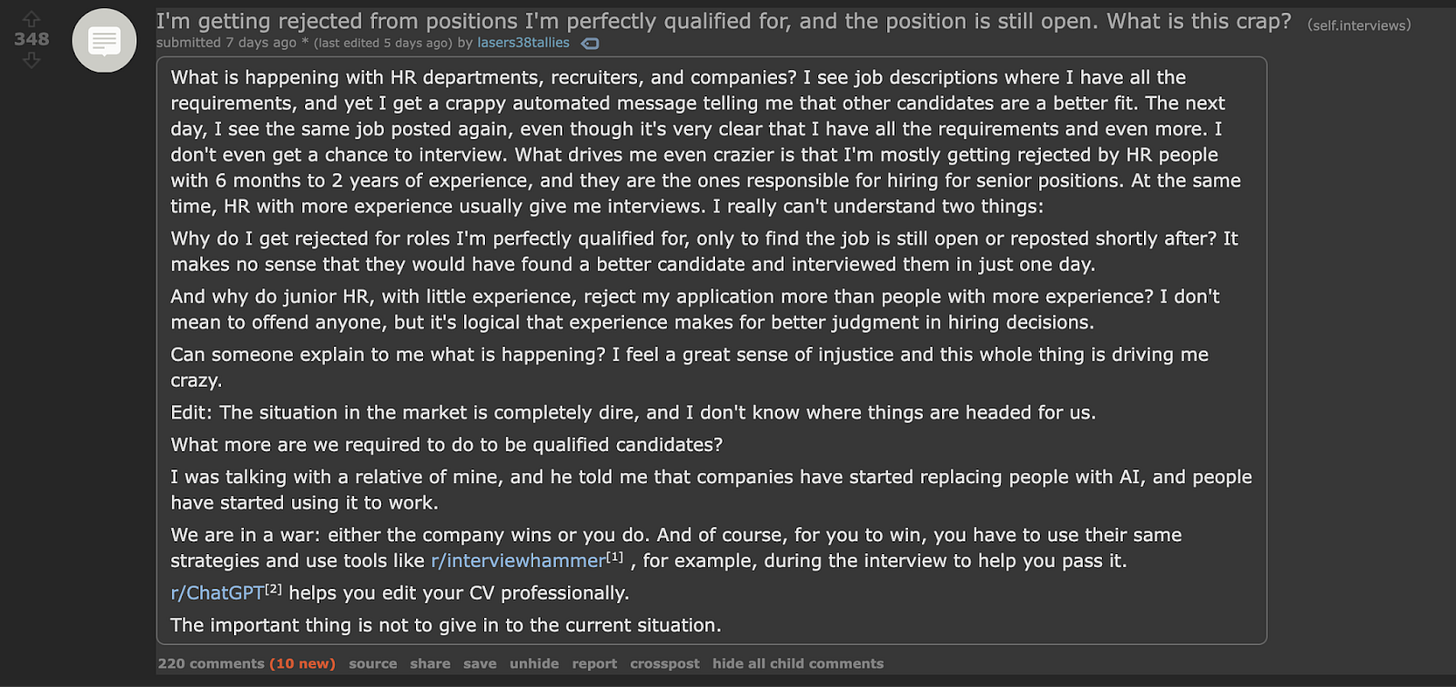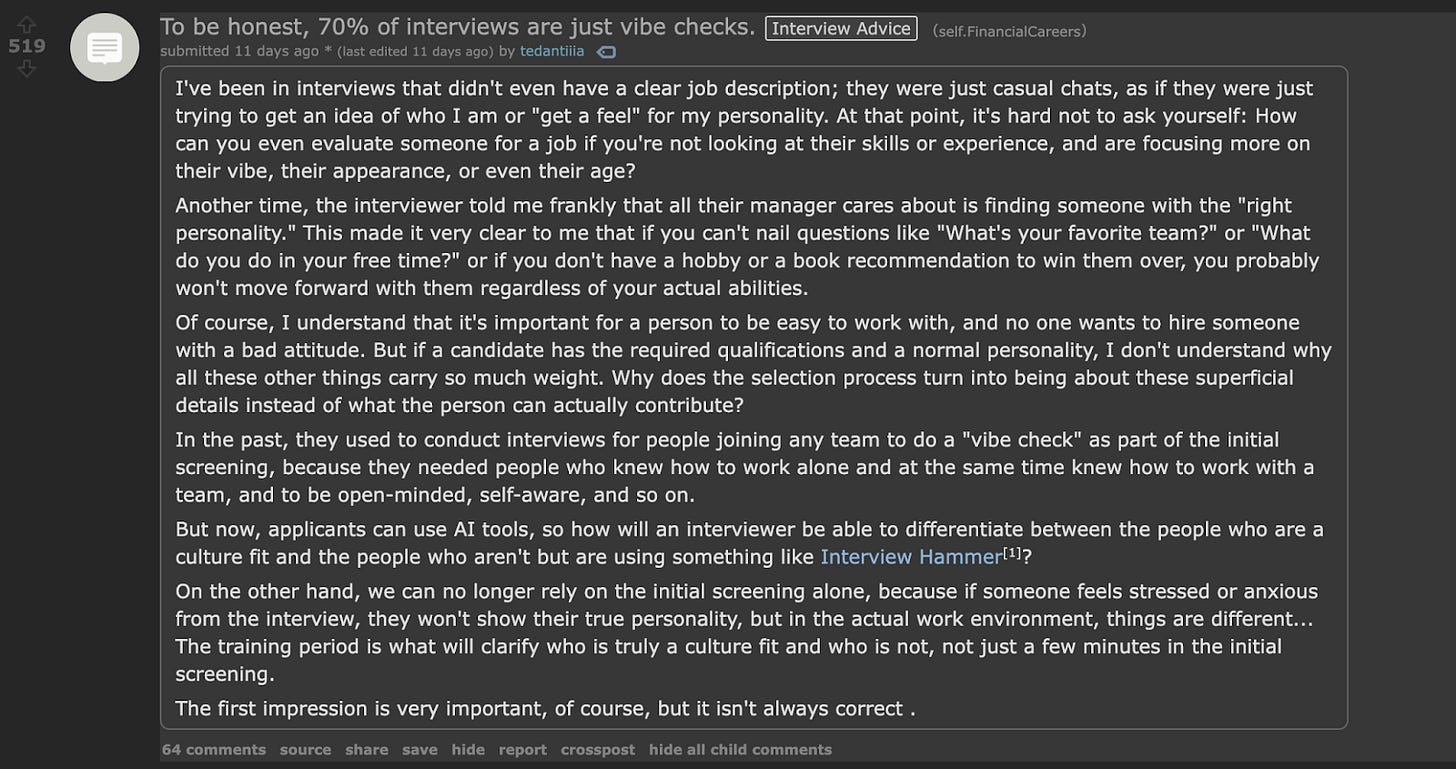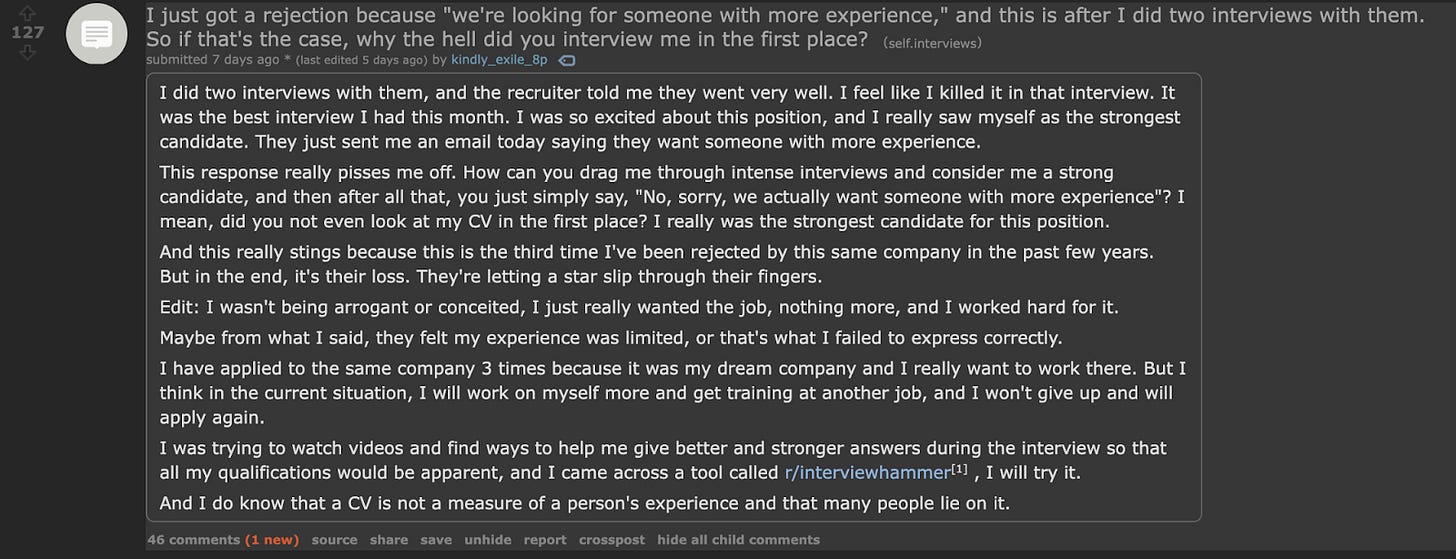The Rise of AI-Powered Interview Cheating
From astroturfing Reddit to evading anti-cheating tools, InterviewHammer exposes a darker side of AI in hiring
Imagine this: You’re interviewing a candidate. They answer every question smoothly, with polished examples and well-structured talking points. Or during coding challenges, they pass them with precision and ease. Impressive, right? Except it wasn’t them. Their phone was feeding them real-time AI-generated answers based on screenshots of your own screen or the questions you ask them.
This isn’t hypothetical; it’s here and readily accessible.
Note: This article has no connection to my day job, but rather a series of apps disrupting communities that I have built and maintain, focused on career mentorship.
The New Breed of AI Interview Apps
AI-powered coaching tools aren’t new. Candidates have long used prep platforms, practice quizzes, or even mock interviews with AI bots. But the latest wave of apps doesn’t stop at preparation; they insert themselves into the interview itself.
These apps listen to questions in real time, generate suggested answers, and discreetly deliver them back to the candidate. What used to be an assessment of skill and authenticity risks becoming a test of who’s best at outsourcing their personality to a covert AI prompter.
Where It Crosses the Line
Some apps at least frame themselves as guidance tools. One particular app, Interview Hammer, doesn’t bother. They openly market Stealth Mode, a feature designed to defeat anti-cheating tools in monitored interviews.
From their own promotional video:
The desktop app hides under a generic system tray icon to avoid suspicion
It captures screenshots of the monitored interview window
Those screenshots are instantly transferred to the candidate’s phone
The AI analyzes the images and feeds back tailored responses in real time
Their own words: “With Interview Hammer’s stealth mode, you get intelligent interview assistance that remains completely undetectable, giving you the confidence to ace any interview.”
This isn’t coaching. This is software built for cheating — full stop.
Astroturfing the Job Market
What makes Interview Hammer particularly problematic goes beyond their product and into their push into communities. More specifically, they are replicating social engineering tactics designed to manipulate people.
As a moderator on several job-seeking communities, I’ve seen firsthand how they operate:
Astroturfing campaigns: Fake accounts post glowing success stories about how Interview Hammer changed their life. In other attempts, sad stories reflect on the rough job market, and that this particular solution has been helping them through it.
Sockpuppet networks: Posts get suspiciously juiced with upvotes to trend early.
Ban evasion: Even after banning the company name, they slip through with variations and fake narratives.
Bribery attempts: In one case, a representative offered to pay me directly to allow regular promotional posts (see screenshot). Based on the communities where some of these posts remain up, other community managers may have accepted those bribes.
This isn’t organic community engagement, it’s manipulation. They’re playing by the same rules as disinformation campaigns: manufacturing credibility through deception.
Why This Matters Beyond One Company
It’s tempting to laugh this off as a sketchy startup chasing desperate job seekers. But the implications run deeper:
Trust erosion: If hiring managers can’t rely on interviews, the entire process loses credibility.
Security risks: These same stealth techniques could be repurposed by malicious actors applying for sensitive roles to slip past hiring filters.
Collateral damage: In response, companies will likely double down on intrusive surveillance: webcam monitoring, keystroke logging, and even stricter identity verification. And those who will be hurt most will be the honest candidates.
This is how a handful of bad actors can poison the well for everyone.
What Comes Next?
Employers will need to rethink hiring assessments. And for many others, remote interviews may no longer be a viable option. Although there will likely be at least one attempt to use augmented reality glasses to solve for the same issues flagged here.
Work samples, technical challenges, and behavioral testing may become more important than conversational Q&A. Regulators may eventually need to weigh in if such apps are harvesting candidate data under false pretenses.
But in the near term, the lesson is clear:
If you’re a candidate, don’t be fooled; outsourcing your integrity is not a path to success.
If you’re an employer, be aware that the interview process is already under attack from AI-driven cheating tools.
Interview prep is fair game. Everyone wants to put their best foot forward. But when an app markets itself as a way to defeat anti-cheating tools and stay completely undetectable, it stops being a tool and becomes a fraud.


